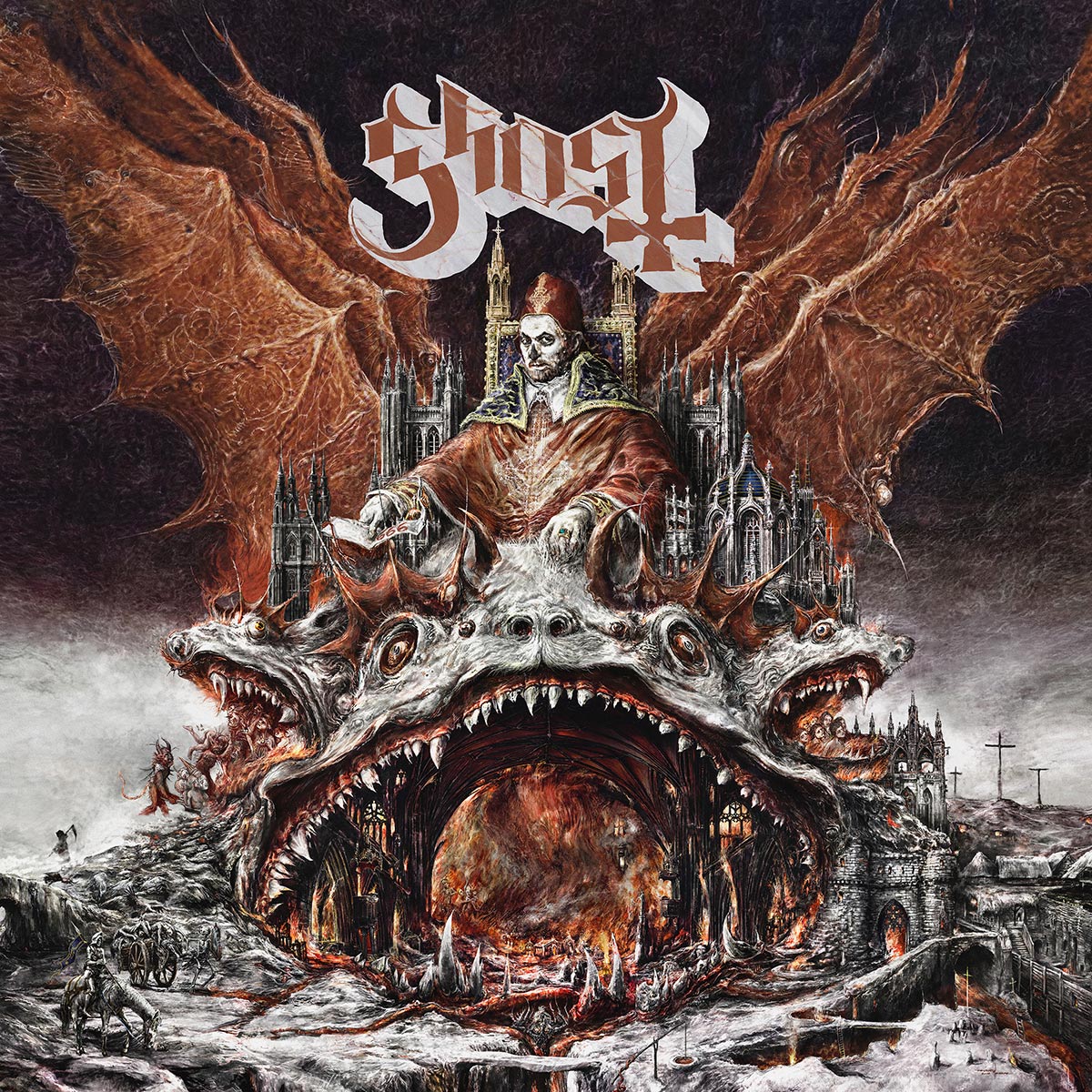Ghost are known for their theatricality. Every aspect of their image has been perfectly curated, be it their on-stage personas, their videos, or (most importantly) their music; and this is certainly evident in Prequelle, the Swedish metal outfit’s fourth studio album.
Prequelle proves that despite a dedicated fanbase and a highly successful backlog, Ghost are not afraid to try something different. This is particularly evident in lead singer Tobias Forge’s decision to retire his Papa Emeritus personas in favour of a new identity, Cardinal Copia. The new identity and the more upbeat tone demonstrates the new direction Forge wishes to take the band in, especially in the wake of a recent lawsuit from former band members.
That is not to say that there is nothing here for die-hard fans. This is still very much Ghost. The music is still solid heavy metal complete with doom and psychedelic motifs, and the subject matter is expectedly dark; delving into themes like the plague, apocalypse, and death.
Ghost’s album releases are often considered to be more like film releases, and in this sense, Ashes –a scene-setting preamble- is the cold-open which establishes the Prequelle’s themes. Children’s voices recite Ring a Ring o’ Roses, before the band’s trademark keyboard-accompanied riffs storm one’s ears leading the way for the lead single, Rats.
One of the strongest songs on the album, Rats is a catchy and powerful declaration of intent that emerges like a kick in the face and reminds the audience who Ghost are. Faith sees the album become even heavier with Forge’s haunting vocals permeating throughout, crafting another great track.
See the Light is a slight step down, but is still a strong song nonetheless, while Miasma ramps back up for the first of two excellent instrumental numbers. It’s nice to see the Nameless Ghouls given chance to shine and the song also serves to highlight why more metal albums should include saxophones. Dance Macabre is another classic track in the making, with its upbeat, almost disco qualities creating something that is just fun to listen to.
It’s from this point that Prequelle starts to stumble somewhat. Pro Memoria is a slower, more sombre track with a slightly too repetitive chorus, while Witch Image is fine, albeit forgettable, when compared with the rest of the album. Thankfully it sticks the landing, with Helvetesfönster, the second instrumental, sampling aspects of earlier tracks from the album. This helps to wrap the album up nicely before Life Eternal’s beautifully reflective quality carries Prequelle through to a poignant exuent.
Ultimately, Prequelle is an excellent addition to Ghost’s catalogue, highlighting how the band is open to change and new ideas while also remaining very true to themselves.


Comments